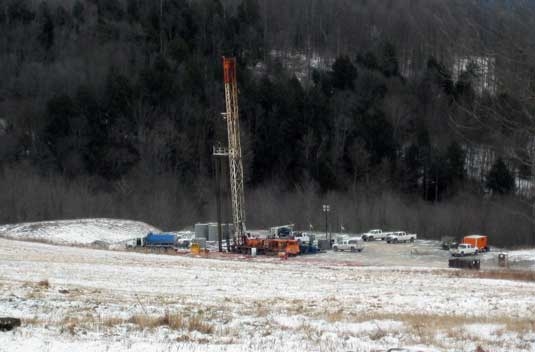Temple researchers will investigate methane gas from Marcellus Shale drilling
http://www.temple.edu/newsroom/2011_2012/07/stories/Marcellus_Shale_drilling.htm
CONTACT: Preston Moretz <preston.moretz@temple.edu> 215-204-4380
Wednesday, July 20, 2011

A Temple study funded by the William Penn Foundation will explore the origin of methane gas found at higher concentrations in drinking wells in areas surrounding Marcellus Shale drilling sites in Susquehanna County.
A multi-disciplinary team of Temple researchers will investigate the origins of methane gas found in drinking water wells near Marcellus Shale drilling sites in Pennsylvania and how science is influencing the formation of public policy on drilling. The research is being funded through a one-year, $66,000 multi-disciplinary grant from the William Penn Foundation.
“We know there are environmental concerns about the Marcellus Shale and there have been some accidents related to the drilling,” said Michel Boufadel, professor of environmental engineering and director of the Center for Natural Resources Development and Protection (NRDP) in Temple’s College of Engineering. “There has been a lot of hype about this issue and sometimes it is difficult to decipher what is fact-based and what is opinion.”
A recent study by researchers at Duke University showed that drinking wells located near Marcellus Shale drilling sites in Susquehanna County had an average concentration of methane gas that was 17 times greater than wells not near drilling sites. The study also concluded that the methane had originated deep below the earth’s surface.
Boufadel, principal investigator for the Temple project, said that the process used to drill into the shale creates enormous pressure that could be forcing pockets of methane toward the drinking wells. Temple’s research will attempt to determine if the methane gas found in the wells was released from the shale during drilling or whether it was located in pockets closer to the surface.
If the methane is originating in the upper formations, the likely cause is the drilling operation or the well casing construction — issues that could be addressed at a reasonable cost, said Boufadel. However, if the gas is originating in the deep formation, the entire hydrofracking process could be considered hazardous and would need to be stopped or dramatically modified, he said.
Michele Masucci, associate professor and chair of geography and urban studies in the College of Liberal Arts, and Nicholas Davatzes, assistant professor of earth and environmental science in the College of Science and Technology will serve as co-investigators on the research project to be conducted by the NRDP Center.
Boufadel said Masucci, a social scientist, will explore how the science of the Marcellus Shale drilling is reaching policy makers, how they are processing it and using it to formulate public policy on the extraction of gas from the Marcellus Shale.
Davatzes, a structural geologist who has conducted research on energy from deep geo-thermal wells, will play a crucial role in constructing the geology of the impacted region, Boufadel said.
“Environmental research is inherently multi-disciplinary; the challenges are not only technical or technological, but socio-political as well,” said Boufadel. “This project is a template for dealing with important environmental issues, such as the Marcellus Shale, where we have researchers from three colleges — Engineering, Science and Technology and Liberal Arts — coming together to find solutions.”
In addition to the research, the grant requires Temple to organize a symposium on Marcellus Shale which will be held in the fall.
